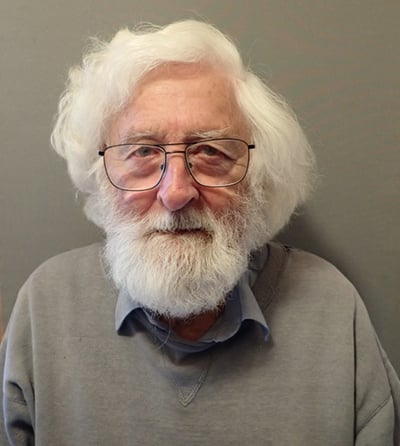 |
|
Rob HurleRetired academic
“They were then able to log into our computers and communicate with other researchers around the world via email. That was absolutely wonderful for them - they’d never been able to do that before.”
|
Dr Rob Hurle is widely accredited with having helped connect Vietnam to the global grid.
While teaching information technology at the Australia National University (ANU) in the late 80s, Rob was frustrated that his Vietnamese students had limited use of personal computers back home, preventing them from putting into practice what they had learnt in Australia.
Travelling to Vietnam in 1991 with a modem to help PhD scholars connect to the mainframe computers more easily, he realised that a bigger barrier was the high cost of phone calls from Vietnam to Australia: “The cost of the telephone call was about A$5 and his salary was about A$25 a month…there was no way.” This led him to work with Tran Ba Thai from the Institute of Information Technology (IIT) in Hanoi on experiments to connect computers through landline phone lines, calling Vietnam from Australia, rather than vice versa, which was more reasonably priced.
The experiments were a success. Rob says, “They were then able to log into our computers and communicate with other researchers around the world via email. That was absolutely wonderful for them - they’d never been able to do that before.”
After that, Telstra – Australia’s largest telecommunications company – invited Dr Hurle to a meeting in Hanoi to give seminars about the world wide web (www) and the internet (the world wide web had only just started then). It was the first time he had met Thai face to face and it was a “very important meeting”.
Shortly after this, Rob and Thai set up the NetNam company and secured the .vn domain name – this was essential to avoid others buying the domain. Everything led to .vn and the ANU and they were able to set up email accounts. At the same time, Thai was setting up a network around Hanoi initially, to connect universities, research institutes and the IIT and Rob would travel over so they could continue to “make things better”.
Rob recalls, “I was in Vietnam setting up an email connection. The Swedish premier was about to come to Vietnam so we arranged an email exchange with him, going through ANU, and that proved that the system Thai and I had set up was going to work. That was the first internet connection that Vietnam had ever had, so that was very important.”
When the internet became more widely available in 1997, ANU was still managing the domain name server (DNS). This was handed over to DGPT once they had built up the expertise. “It was a very interesting time and has proven to be very beneficial to Vietnam.”
After retirement from the ANU, Rob started studying Vietnamese and Vietnamese history “because it was very interesting”. He spent 6 months in Hanoi working on a thesis and was inspired by a visit to the Museum of the Revolution to do a large study of the propaganda used by Ho Chi Minh at the end of the Second World War, and this resulted in a PhD in Vietnamese history in 2014. He later taught Vietnamese history and culture at ANU.
When he thinks about Vietnam, he thinks about the young engineers, enthusiasm and willingness to take a chance. He also refers to the lack of pretensions: “We would have very important meetings in very small offices, somewhere quiet or perhaps a bia hoi, and work out what we were going to do. And that sort of closeness, people to people, that was very important.”
